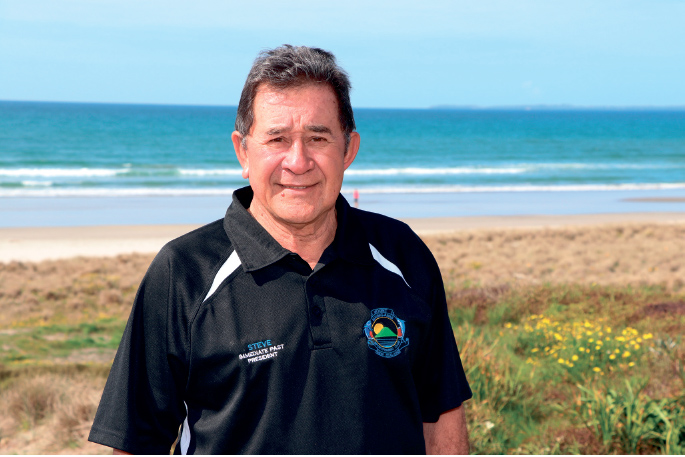Apprehension is building in the Bay of Plenty fishing community about whether a number of popular offshore reefs will be permanently closed.
A long-running legal battle led by the Motiti Rohe Moana Trust and supported by Forest and Bird has reached the Court of Appeal, with a decision still pending on whether or not the Resource Management Act should be used to restrict access to a number of reefs surrounding Motiti Island including Ō karapu Reef, Otāiti (Astrolabe Reef), Schooner rocks, Brewers Shole, Plate Island and Tokoroa Shoals.
The Trust is worried about the declining marine environment so took a case to the Environment Court in 2017 arguing that better protections were needed in the Bay of Plenty Regional Coastal Environment Plan.
In a landmark decision released last year, the Environment Court ruled in favour of the Trust and said the RMA applies to protecting significant indigenous biodiversity areas – effectively directing Bay of Plenty Regional Council to protect the reefs. Three protection areas would be established banning everyone (including Motiti Island residents) from taking plants or animals due to their significant marine biodiversity values.
These protected areas haven’t yet been established because the Ministry for Primary Industries (on behalf of the Crown) appealed the decision to the High Court – which again ruled in the Trust’s favour. Now the case has progressed to the Court of Appeal with the NZ Rock Lobster Industry Council, Fisheries Inshore NZ and the Pāua Industry Council having joined MPI in a further appeal. At issue is the jurisdictional overlap between the Fisheries Act 1996 and the Resource Management Act 1991.
It’s not yet known when the Court of Appeal will release their decision.
The dispute has received little publicity until now and many fishermen have only recently become aware of the possible reef closures – sparking anger and confusion as to what the long-term implications might be for New Zealand’s entire coastline.
Mount Maunganui Sports Fishing Club committee member Steve Penn believes the Trust’s position is a knee-jerk reaction following the Rena grounding in 2011.
“Personally I think their claim has become emotional. For years and years those reefs have been open to the public for fishing and there’s been no fears raised about depletion of stock. Not until the Rena ran aground.
“Then all of a sudden, people started saying we should turn that area into a marine reserve, that all the fisheries are endangered and the oil is going to kill off everything. When you have a major disaster like the Rena, of course that’s going to happen. But the area has recovered well. I’ve fished and dived up there for 40+ years and I really don’t see any long-term depletion.
Despite the Environment Court’s ruling in favour of closure, Steve says more scientific proof is needed to show a marine reserve is justified. He says the vast majority of recreational and commercial fishermen abide by bag limits and regulations to ensure stock levels are maintained, and other tools could be used besides a total closure.
“You could call for a restriction on commercial activity, long-lining, netting and other bulk-methods of gathering, Steve suggests. “The major thing that’s upsetting everybody is there’s been no consultation on the future of what’s going to happen. We are all now waiting with bated breath to see what the Court of Appeal decides.”
The Mount Maunganui Sports Fishing Club has also seen correspondence which suggests only a small number of Motiti Island residents are in favour of closing the reefs, with other hapu members opposed to it. “There’s only about 10 or so people who are actually driving this thing, and of course Forest and Bird. But it’ll affect a major number of recreational fishers in this country.”
Fellow fisherman Chris Bailey agrees it’s been a shock to hear of the court proceedings and what it might mean. “There’s been no consultation to speak of and virtually no notification. I always thought anything as crucial as this would have had to have been in the public spotlight and had the public onboard. But there’s been nothing.”
Chris has fished around Motiti for decades and is worried any closure will simply increase pressure on other parts of the coastline. “I think what the Motiti Trust is trying to achieve is admirable – we all want to maintain the fishing stocks. But this is certainly a divisive way to go about it and I don’t think they’re going to have the support of the wider community.”
Te Puke-based fisherman Roger Hintz says conflicting information is circulating in the fishing community and anger is mounting.
“It’s been kept almost clandestine – very little known about it, very little said about it. There’s so many questions at so many levels and there needs to be some answers. It has massive implications.”
Roger says the Environment Court appears to be making political decisions rather than the regional council, and the latter isn’t geared up to implement and enforce marine reserves.
“I’m all for reserves, I want to see a whole lot more, but I want to see it done on a formula that’s scientifically-based and has some structure to it, not just something that’s ad hoc and pushed by a certain group and Forest and Bird.”
Bay of Plenty Regional Council’s Regional Development Manager, David Phizacklea, confirmed no final decision can be made on the protection areas until all court proceedings have concluded.
If the interim Environment Court decision is upheld, David confirms the ‘no take’ rule would apply to everyone, including Motiti Island residents. There is no provision for customary rights.



0 Comments
Leave a Comment